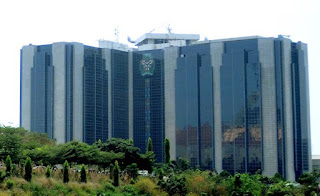
FG Ramps Up Disbursement of CBN’s N140bn Solar Intervention Fund
The federal government is ramping up the disbursement of the N140 billion solar intervention fund, a facility by the Central Bank of Nigeria (CBN) to close the huge energy gap, especially in Nigeria’s rural communities.
In the last quarter of 2020, the CBN had introduced the fund that would offer obligors access to a credit facility that would not exceed a maximum of N500 million, with the aim of providing affordable mini-grid solutions to rural dwelmini-grid.
The apex bank posited that the pathways to energy access, financial inclusion and poverty reduction were closely linked and required rapid scale of pay-as-you-go off-grid technologies that would create a $2 billion annual market opportunity.
To support the economic recovery in response to the COVID-19 pandemic, the CBN said the federal government launched the initiative as part of the Economic Sustainability Plan (ESP) to achieve the rollout of 5 million new solar-based connections.
According to the CBN, the solar connection scheme aims to expand energy access to 25 million individuals (five million new connections) through the provision of solar home systems or connection to a mini-grid.
Stakeholders who spoke on the matter, stated that proper implementation of the fund was capable of lifting many underserved communities from poverty, especially in the use of the deployment of energy uses in agriculture.
Executive Director, Rural Electrification Fund (REF), Sanusi Ohiare, said government had been working and making remarkable progress through the N140 billion CBN fund.
He stressed that the whole idea was to encourage local developers in the renewable energy industry to up their game, confirming that a number of developers had already benefitted from the funds.
“The loans, in naira denominated fund, have been an issue because by getting funds outside the country, it comes with foreign exchange problems.
“We have already disbursed to a few developers and we are hoping that going forward, we can scale up the disbursement so that we can manufacture renewable energy components and provide electricity through mini-grids and solar,” he said.
In his intervention, Special Adviser to the President on Infrastructure, Ahmad Zakari, assured that off-grid power would experience massive progress this year, adding that the Rural Electrification Agency (REA) would fast track the plan.
He said: “The NSIA just announced a N10 billion intervention under solar power Naija and we see solar off-grid connections moving towards new peaks as financing is crowded in through Solar Power Naija and other REA programmes with critical development finance institutions.
“We expect multiple commissioning of large mini-grid projects in universities, markets and rural areas across the country,” he explained.
Furthermore, an Energy Expert at PWC, Habeeb Jaiyeola, noted that in a developing market like Nigeria, the need for interventions like the extant one remains critical.
“Interventions from government entities like CBN are all required in developing environments like Nigeria, but proper integration is required. There’s a lot of infrastructural investment into that whole architecture,” he posited.
Jaiyeola noted that while more funding had been going to conventional energy generations sources, investment in the renewable sector where government intends to generate 30 per cent of the 30,000 megawatts projection by 2030 has not been up to par.
He advised that the intervention has to be in a way that beneficiaries are able to pay back, so that the fund can contribute to the development of other sectors.
He noted that government needs to consider the plan in line with existing initiatives, including the Siemens power deal, adding that the facility would be less difficult to service unlike a dollar-denominated loan.
“Forex differential is something that continues to play against the country. So, it is very good that the fund is coming locally. This development applies across board and not in the power sector alone,” he explained.
In his remarks, Executive Director, International Network for Africa Development (ISNAD-Africa), Adedoyin Adeleke, stated that developing rural communities by bridging energy access makes the N140 billion a welcome development.
According to the CBN, 85 million Nigerians do not have access to grid electricity, representing 43 per cent of the country’s population and making it the largest energy access deficit country in the world.
In addition, the 2020 World Bank Doing Business report, ranked Nigeria 171 out of 190 countries in electricity access.

0 Response to "FG Ramps Up Disbursement of CBN’s N140bn Solar Intervention Fund"
Post a Comment